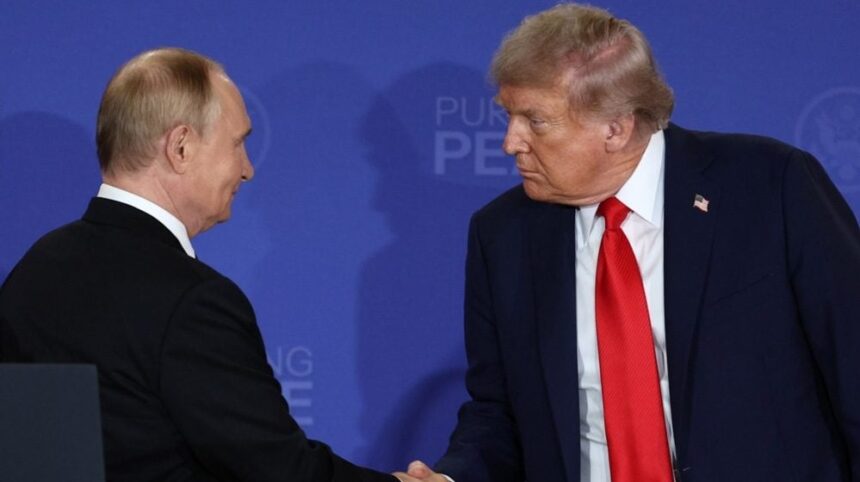For many in Eastern Europe, August 1939 does not feel so distant. That was the moment when Hitler’s Germany and Stalin’s Soviet Union secretly agreed to divide Poland and subjugate the Baltic republics and Finland into their totalitarian “spheres of influence.” The world knows what followed.
Now, warns The Guardian columnist Simon Tisdall, the question is whether history is repeating itself—this time with Donald Trump’s America and Vladimir Putin’s Russia. Both leaders are engaged in a geopolitical power game that places Europe once again at risk.
Parallel Agendas
While Trump does not seek physical conquest, his methods—political interference, ideological subversion, economic blackmail, and the export of conservative Christian-nationalist values—amount to a form of domination. Putin, by contrast, pursues his aims more aggressively, refusing to let go of Ukraine while projecting military threats across the Baltics, the Black Sea, and beyond.
Both men, Tisdall argues, despise European liberal democracy, reject multiculturalism, and yearn for past imperial glories. Their shared ultranationalism feeds dangerous ideas of ethnic and racial supremacy long thought buried in Europe.
Destabilizing Europe
Trump openly signals his desire to normalize relations with Moscow, framing it as a lucrative opportunity. Yet his erratic “pinball” diplomacy leaves Ukraine and NATO allies exposed, with sanctions watered down and military support uncertain.
Putin, meanwhile, continues hybrid warfare: cyberattacks, sabotage, disinformation, and the manipulation of migrant flows across EU borders. Together, their tactics reinforce each other—destabilizing elections, empowering far-right populist parties, and weakening European institutions.
Both Trump and Putin also cultivate allies across the continent: Trump with Italy’s Giorgia Meloni and Britain’s Nigel Farage, and Putin with Viktor Orbán in Hungary and Robert Fico in Slovakia.
Economic and Cultural Warfare
Tisdall highlights Trump’s unilateral tariffs, lopsided trade deals, and tech investment strategies as veiled economic coercion. Putin’s sabotage of pipelines, cyberattacks, and covert operations serve a parallel purpose.
Even culture is a battlefield. Reports from the European Council on Foreign Relations (ECFR) describe a U.S.-led cultural offensive designed to promote Trump-aligned ideology while undermining the EU—mirroring Russian propaganda campaigns.
A Double Threat
Though not formal allies, Trump and Putin act in ways that undermine European democracy, security, and progressive values. Tisdall warns that their combined pressures resemble a pincer movement:
“Planned or not, Trump and Putin—like-minded, amoral, authoritarian predators—are working in parallel to erode Europe’s freedoms. The echoes of 1939 are growing louder.”







